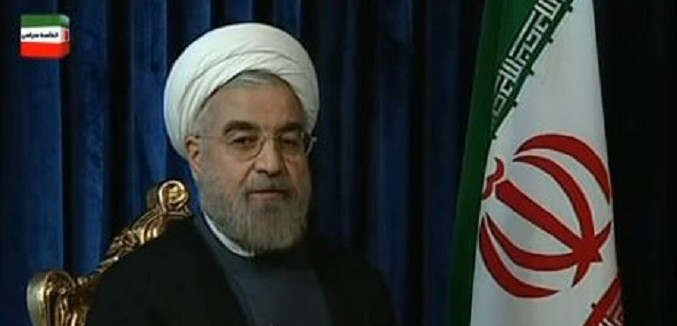Testimony presented this week to the House Foreign Affairs Committee marked deepening doubts about the capacity and motivation of Iranian president-elect Hassan Rouhani to act as a moderate reformer. Karim Sadjadpour, a senior associate at the Carnegie Endowment’s Middle East Program, sought to temper expectations [PDF]:
While the Iranian public reacted jubilantly to Rowhani’s victory—the equivalent of a light rain after eight years of drought—expectations about his will and ability to affect meaningful change in both Iran’s internal and external behavior should be tempered. Although Rowhani was endorsed by key reformist figures, including former President Mohammed Khatami, he is less a reformer than a consummate regime insider who is committed to the preservation of the Islamic Republic. Indeed, if he was anything less, he would not have been permitted to run. His campaign did not focus on pursuing democracy, or altering the Islamic Republic’s strategic principles, but on moderating its style more than its substance.
Rowhani’s victory is unlikely to alter the conditions needed for a rapprochement between the U.S. and Iran. If Washington’s goal is détente with Tehran, however, Rowhani’s victory was likely the best possible outcome of a deeply flawed and unfree electoral process.
When asked this week by a France-24 correspondent to evaluate the prospects of suspending uranium enrichment, Rouhani responded “that era is over now.” Meanwhile new allegations connecting Rouhani to decades of Iranian state terrorism are emerging.
The president-elect turns out to have served as a member of Iran’s Special Affairs Committee. In that capacity he helped direct the murders of regime opponents and dissidents. The Wall Street Journal suggested this morning that a career spent dispatching Iranian operatives to hunt down political dissidents is not very moderate:
It complemented Mr. Rohani’s newly minted reputation as a “moderate” and a “reformer.” But the Iranian dissidents whose assassination he oversaw would find the label inapt—that is if they were still around to object… Mr. Rohani throughout the mid-1990s served as a member of the Islamic Republic’s sinister Special Affairs Committee. The body “was established after Ayatollah Khomeini’s death to make decisions on important matters of state,” according the report. “One of the issues handled by the Committee was the suppression and elimination of political opposition to the Islamic Republic. As the secretary of the Supreme National Security Council, Vice-President Hassan Rohani told the Iranian newspaper Ettela’at in 1994 ‘[Iran] will not hesitate to destroy the activities of counterrevolutionary groups abroad.'”
Rouhani and the Special Affairs Committee have also been linked to the 1994 bombing of a Jewish community center in Buenos Aires, Argentina that killed 85 people.




